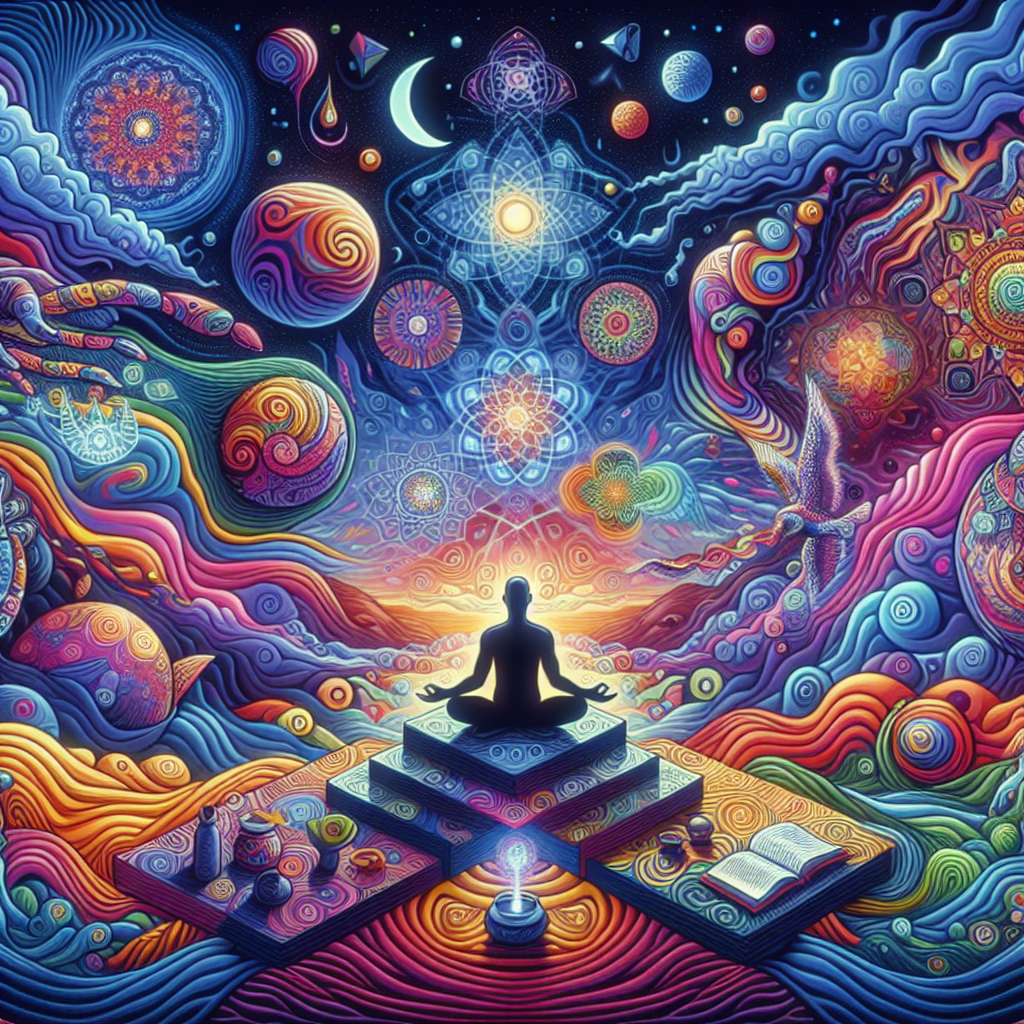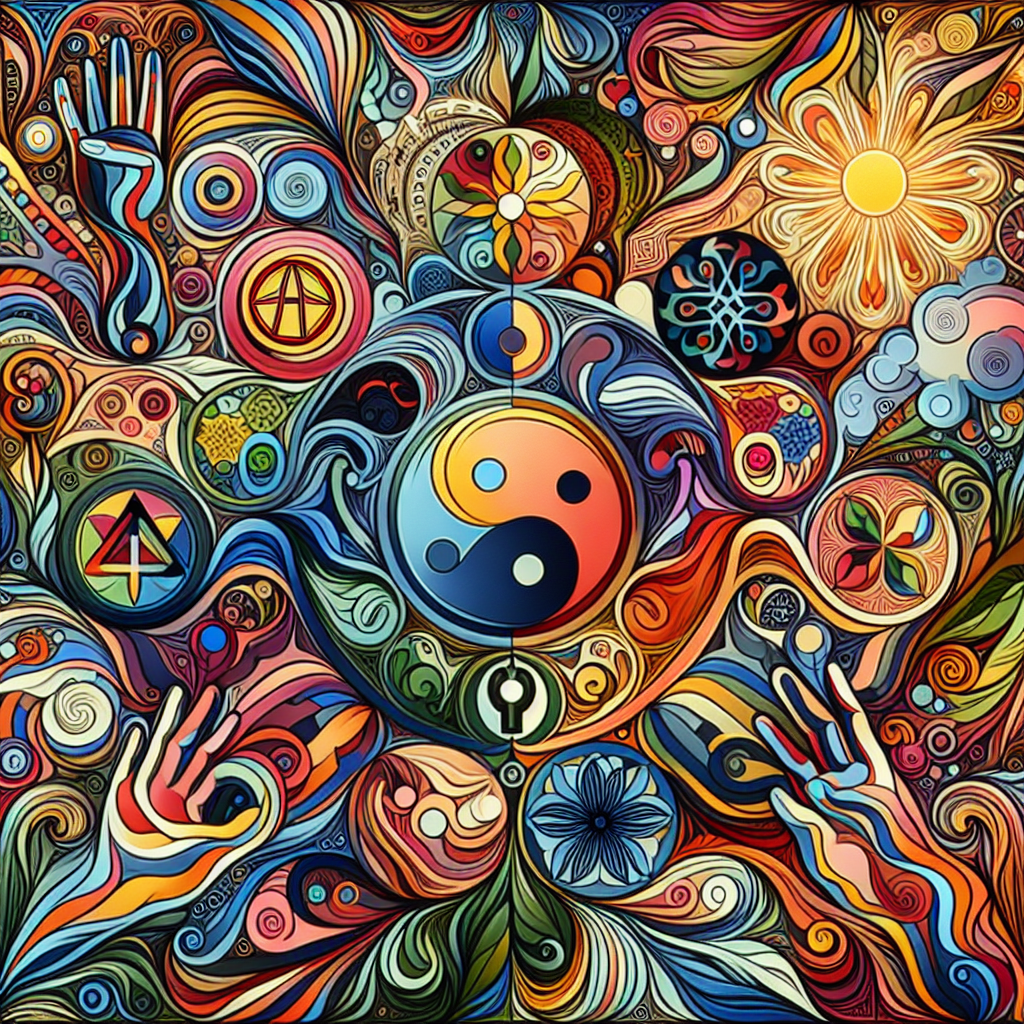The Role of Psychedelics in Holistic Well-Being

Discover more about the role of psychedelics in holistic well-being. Uncover how these substances can potentially enhance your overall health and wellness. Visit My Vibrant Vitality now to learn more.
Exploring the Impact of Psychedelics on Holistic Well-Being
The role of psychedelics in holistic well-being is a topic that has been gaining significant attention in recent years. As the stigma surrounding these substances begins to fade, more and more people are exploring their potential benefits. This exploration is not limited to recreational use; rather, it extends to the realm of holistic well-being, where psychedelics are being studied for their potential to promote mental, emotional, and spiritual health.
Psychedelics, such as psilocybin (found in magic mushrooms), LSD, and ayahuasca, have been used for centuries in various cultures for spiritual and healing purposes. Today, modern science is beginning to uncover the mechanisms behind these effects, revealing a fascinating intersection between neuroscience, psychology, and spirituality.
One of the most significant impacts of psychedelics on holistic well-being is their potential to facilitate profound experiences of self-transcendence. These experiences, often described as mystical or spiritual, involve a sense of unity with the universe, a dissolution of the ego, and a deep sense of inner peace. Research suggests that these experiences can lead to lasting improvements in mental health and well-being, including reduced symptoms of depression and anxiety, increased life satisfaction, and improved relationships.
Moreover, psychedelics have been found to promote neuroplasticity, the brain’s ability to form new connections and change its structure in response to experiences. This can lead to profound shifts in perspective and behavior, allowing individuals to break free from harmful patterns and embrace healthier ways of being. For instance, studies have shown that psilocybin can help individuals overcome addiction, a testament to its potential to catalyze transformative change.
In addition to these psychological benefits, psychedelics may also have a positive impact on emotional well-being. Many users report experiencing a deep sense of empathy and connectedness during their psychedelic experiences, feelings that can persist long after the effects of the substances have worn off. This enhanced emotional awareness and sensitivity can lead to improved relationships and a greater sense of belonging, contributing to overall well-being.
On a spiritual level, psychedelics can facilitate experiences of transcendence and interconnectedness that can profoundly shift one’s worldview. These experiences can lead to a greater sense of purpose and meaning, a deeper appreciation for life, and a heightened sense of gratitude. For many, these spiritual experiences are among the most meaningful and transformative aspects of their psychedelic journeys.
However, it’s important to note that while the potential benefits of psychedelics are significant, they are not without risks. These substances can induce intense and sometimes challenging experiences, and should be used responsibly, ideally under the guidance of a trained professional. Furthermore, more research is needed to fully understand their effects and to develop safe and effective therapeutic protocols.
In conclusion, the role of psychedelics in holistic well-being is a promising area of exploration. These substances have the potential to facilitate profound experiences of self-transcendence, promote neuroplasticity, enhance emotional well-being, and catalyze spiritual growth. As our understanding of these effects continues to evolve, it’s clear that psychedelics have much to offer in the realm of holistic well-being. However, their use should always be approached with caution and respect, acknowledging both their potential benefits and risks.
The Role of Psychedelics in Enhancing Mind-Body Connection

The role of psychedelics in holistic well-being is a topic that has been gaining significant attention in recent years. This is largely due to a growing body of research suggesting that these substances, when used responsibly and under the guidance of a trained professional, can have profound effects on mental health and overall well-being. One of the most intriguing aspects of this research is the potential role of psychedelics in enhancing the mind-body connection, a fundamental aspect of holistic health.
The mind-body connection refers to the relationship between our mental and physical health. It is based on the understanding that our thoughts, feelings, beliefs, and attitudes can positively or negatively affect our biological functioning. Conversely, what we do with our physical body—what we eat, how much we exercise, even our posture—can impact our mental state. This interconnection is a central tenet of holistic health, which emphasizes the importance of considering the whole person—body, mind, spirit, and emotions—in the quest for optimal health and wellness.
Psychedelics, such as psilocybin (found in magic mushrooms), LSD, and ayahuasca, have been found to significantly enhance this mind-body connection. They achieve this by altering perception and cognition, allowing users to experience a heightened sense of self-awareness and introspection. This can lead to a deeper understanding of the self, a greater appreciation for life, and a more profound connection with the world around us.
Moreover, psychedelics have been shown to stimulate neurogenesis—the growth and development of nervous tissue—and increase neuroplasticity—the brain’s ability to reorganize itself by forming new neural connections. This can lead to improved mental flexibility, allowing individuals to break free from rigid thought patterns and behaviors that may be contributing to mental health issues such as depression, anxiety, and addiction.
Furthermore, the use of psychedelics can facilitate a state of ego dissolution, where one’s sense of self temporarily fades away. This can lead to a feeling of unity or interconnectedness with all things, a state often associated with spiritual experiences. Such experiences can have a profound impact on an individual’s perspective on life, leading to lasting changes in attitudes and behaviors that promote holistic well-being.
However, it’s important to note that the use of psychedelics is not without risks. These substances can induce intense and sometimes distressing experiences, and their use should always be supervised by a trained professional. Additionally, they are not suitable for everyone, particularly those with a history of psychosis or other serious mental health conditions.
In conclusion, while the use of psychedelics is not a panacea for all health issues, they offer a promising avenue for enhancing the mind-body connection and promoting holistic well-being. As research continues to shed light on their potential benefits and risks, it is hoped that these substances will become an integral part of a comprehensive approach to health and wellness. This approach recognizes the importance of nurturing not just the body, but also the mind and spirit, in our pursuit of optimal health and happiness.
Psychedelics and Their Potential in Holistic Healing Practices
Psychedelics, once relegated to the fringes of society, are now gaining recognition for their potential in holistic healing practices. These substances, which include LSD, psilocybin (magic mushrooms), and ayahuasca, have been used for centuries in various cultures for spiritual and therapeutic purposes. Today, they are being reevaluated by the scientific community for their potential to promote holistic well-being.
Psychedelics are known for their ability to induce profound changes in consciousness, often leading to experiences of unity, interconnectedness, and transcendence. These experiences can have lasting positive effects on mental health, leading to increased openness, improved mood, and reduced anxiety and depression. Moreover, psychedelics have been shown to facilitate neuroplasticity, the brain’s ability to form new connections and pathways. This can lead to improved cognitive flexibility, creativity, and problem-solving abilities.
However, the potential of psychedelics in holistic healing practices extends beyond their direct effects on the brain. Psychedelics can also serve as powerful tools for self-exploration and personal growth. They can help individuals confront and resolve deep-seated emotional issues, leading to increased self-awareness and emotional intelligence. This can result in improved relationships, increased self-esteem, and a greater sense of purpose and meaning in life.
Furthermore, psychedelics can facilitate experiences of spiritual significance, which can have profound effects on an individual’s worldview and values. These experiences can lead to increased compassion, empathy, and altruism, as well as a greater appreciation for nature and the interconnectedness of all life. This can result in a shift towards more sustainable and ethical lifestyle choices, contributing to overall well-being and happiness.
Despite these potential benefits, it’s important to note that psychedelics are not a panacea. They are powerful substances that should be used with caution and respect. The use of psychedelics can lead to challenging experiences, including anxiety, paranoia, and delusions. Therefore, it’s crucial that they are used in a safe and supportive environment, ideally under the guidance of a trained professional.
Moreover, while psychedelics can facilitate profound personal growth and transformation, they are not a substitute for ongoing personal development practices such as meditation, therapy, and healthy lifestyle choices. Psychedelics can provide a catalyst for change, but it’s up to the individual to integrate these experiences into their daily life and continue the work of personal growth and healing.
In conclusion, psychedelics hold great potential in holistic healing practices. They can promote mental health, facilitate personal growth, and inspire spiritual experiences, contributing to overall well-being and happiness. However, they should be used with caution and respect, and in conjunction with ongoing personal development practices. As our understanding of these substances continues to grow, it’s likely that they will play an increasingly important role in holistic health and well-being.